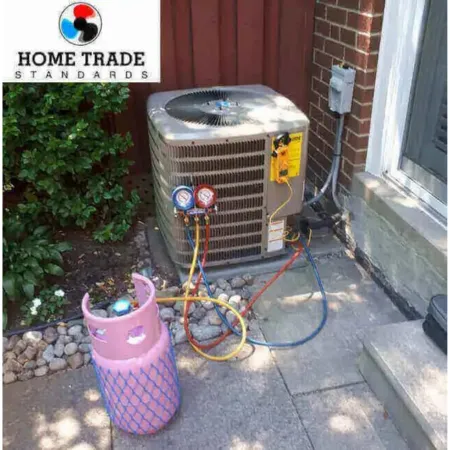How To Tender Your Building Fan Coil or Heat Pump Projects?
Many property managers struggle with older In-Suite HVAC systems once they pass the expected life expectancy. Whether you are looking to do annual/semi-annual maintenance or building a wide HVAC retrofit project, the board of directors will need to have a proper tendering process to select the right contractor for your building. Here we outlined a…
How Long Do Fan Coil Units Last? – Home Trade Standards
How Long Do Fan Coil Units Last? Fan Coil units are designed to operate for 20 years according to manufacturer specifications. Studies found many risks associated with fan coil systems exceeding 20 years of lifespan. Fan Coils are the most commonly installed HVAC systems in Toronto’s low rise & high rise residential condo buildings. Fan…
What Are The Best Heat Pumps For My Condo? – Toronto & GTA
Our clients often ask, “what is the best heat pump for my condo?” We are restricted by Condo HVAC requirements, space, compatibility, and liability issues. Therefore, we may only have a few choices when selecting the correct replacement heat pump system for your condo. Condo Heat Pump System Condo Heat pump System performs different from…
Why Is a Bad Smell Coming Out of My Condo HVAC System?
Do you smell musty in your home? Bad odour is one of the most reported problems by condo residents. This is mainly due to the lack of HVAC maintenance in your condo suite. Filter replacement isn’t only enough to have perfect indoor air quality. During the summer months, condensation causes a lot of moisture &…
When Do Condos Turn On Air Conditioning?
With the warmer weather approaching in April & May, most condo buildings with fan coil unit turn off the building central boiler system. At this time, you may not have heating or cooling. Normally building management post public announcement in the building common area to notify residents about switch over dates. Once the building chiller…
What To Expect Before & After Condo Fan Coil Replacement?
If you’re currently scheduled for a fan coil retrofit project, here is how you can prepare before & after the work is completed. Book the service elevator for the day of installation. Ensure there is a minimum of 6 ft or 2 Metres clearance around the fan coil area. Our technicians will use different tools,…
6 Ways To Eliminate Excessive Humidity & Condensation Levels In Your Condo?
Condensation & excessive levels of humidity can cause potential problems for your condo apartment. Most Toronto condo owners and property managers have to deal with some degree of challenge regarding excessive humidity in the apartment. Now in Toronto, the majority of downtown waterfront condos suffer more during hotter summer days because of Lake Ontario water…
6 Reasons Your Condo Gets Too Hot or Too Cold In The Winter? – Condo Tips
Many condo owners in Toronto contact us when they feel like the temperature in their space is either too hot or too cold consistently. This is one of the most reported problems in residential low-rise & high-rise buildings. In this guide, we would like to examine six (6) common causes of in-suite temperature imbalances and…
What’s The Best HVAC System For My Condo?
If you live in a condo with an old or Broken HVAC system & wondering what is the best Condo HVAC replacement for your current unit, this article is for you! As Toronto Condo Buildings get older, residents start to face the frequency of visits with their existing heating & air conditioning systems. The first step to select the…
3 Reasons Why Your Condo HVAC Is Not Working & How To Fix It
Is your condo HVAC no working? Did you know that condo residents are for mostly all in-suite heating & air conditioning issues in low rise and high rise condos in Toronto & GTA? We understand that it could be frustrating to have problems with your condo heating unit when you need them the most during…
Condo Fan Coil Change Over From Air Conditioning To Heating
Toronto weather is getting colder at night and this means that condo building managers will begin to post announcements and notices around the building common area to notify the residents about the in-suite fan coil changeovers. Although Building staff usually use every communication medium to communicate with the residents, building managers are reporting that many residents are…
What It Means To Have an Air Conditioner With R-22 Refrigerants?
R-22 also known as Freon Refrigerants are Hydrochlorofluorocarbons (HCFCs) chemicals that contain hydrogen, chlorine, fluorine and carbon. R-22 refrigerants are ruled to be phased out In completely on Jan 1, 2020 by The Environmental Protection Agency or EPA. This organization sets federal laws for HVACR contractors and manufacturers. They establish guidelines, restrictions and penalties for…


